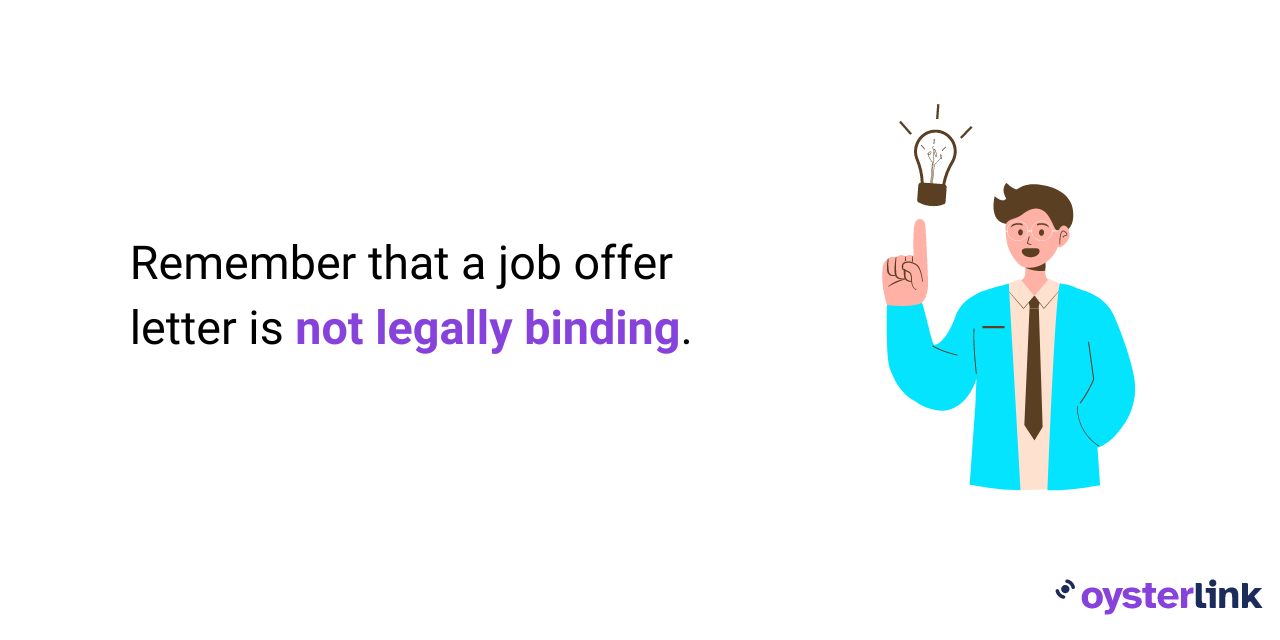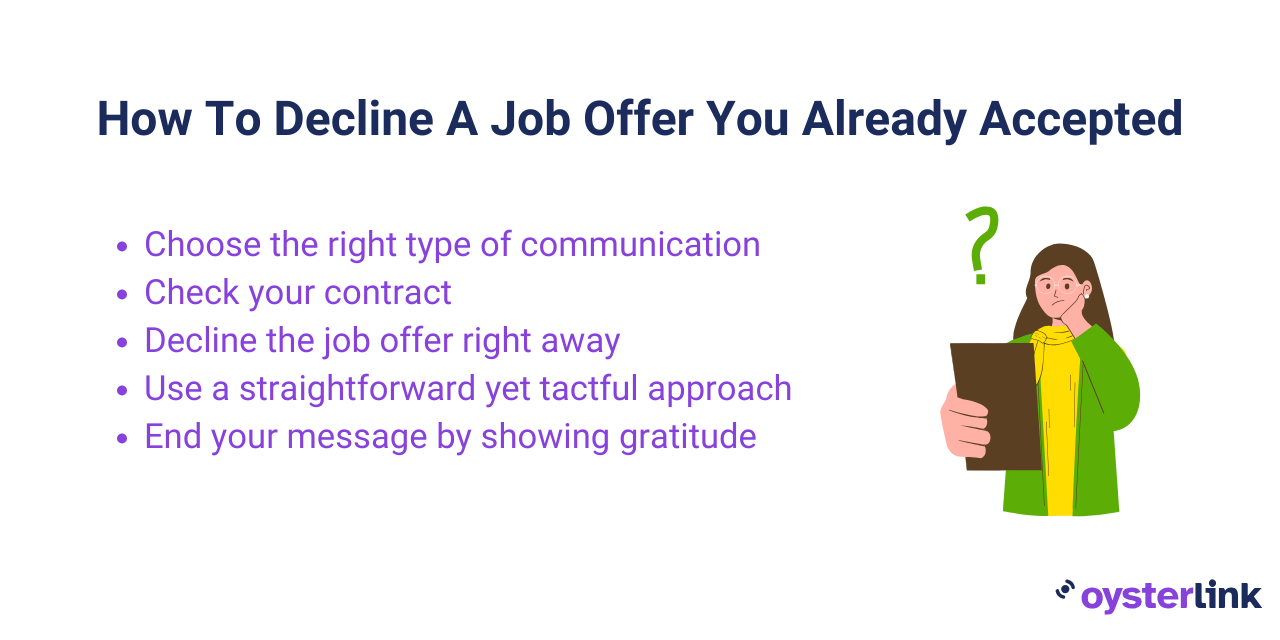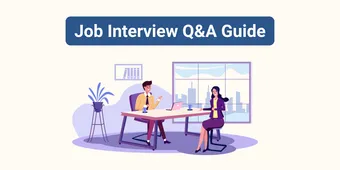In this article, we’ll share tips on how to decline a job offer you already accepted. We’ll also list the top reasons for declining a job offer and answer frequently asked questions surrounding this complex scenario.
Common Mistakes When Declining a Job Offer You’ve Already Accepted
Declining a job offer you've already accepted can be a tricky situation. While it’s entirely possible to back out of a job after accepting it, handling the conversation improperly can leave a lasting negative impression. Below are some of the most common mistakes candidates make when declining an offer, and how to avoid them:
1. Not Communicating Promptly
One of the biggest mistakes you can make is delaying your decision to decline the job offer. Employers often spend considerable time and resources during the hiring process, and notifying them at the last minute can create unnecessary complications. The sooner you communicate your decision, the better. A timely response is not only respectful but also allows the employer to move forward and continue their search for the right candidate.
How to Avoid It: As soon as you’ve made your final decision, inform the hiring manager immediately. Doing so will help maintain professionalism and leave a good impression, even if you’re backing out.
2. Failing to Be Clear and Direct
Some candidates may hesitate to directly decline an offer out of fear of confrontation or discomfort. This can lead to vague or overly apologetic communication that leaves the employer unclear about your intentions. Being indirect can cause confusion and might even lead to the employer continuing to pursue you for a role you’re no longer interested in.
How to Avoid It: Be straightforward, yet tactful. Clearly state that you are declining the offer, and if applicable, briefly mention the reason, such as a new opportunity that better aligns with your goals.
3. Over-Apologizing
While it’s essential to express gratitude and apologize for any inconvenience caused, over-apologizing can undermine the professionalism of your communication. Constantly saying sorry can make you seem indecisive or unsure of your decision. It also may make the employer feel like they need to console you, which can come off as unprofessional.
How to Avoid It: Keep your apology brief and sincere. Acknowledge the inconvenience but avoid excessive regret. For example, "I truly apologize for any inconvenience this may cause" is sufficient.
4. Not Offering a Reason (or Offering Too Much Detail)
While you’re not obligated to provide a detailed explanation for your decision, it can be helpful to share a brief reason—especially if the decision is based on a professional or personal situation. However, oversharing unnecessary personal details can diminish your professionalism and make the employer uncomfortable.
How to Avoid It: Offer a general, respectful explanation, such as "After careful consideration, I’ve decided to pursue an opportunity that aligns more closely with my career goals." Keep it short and to the point.
5. Burning Bridges
Declining a job offer poorly can create a negative reputation, especially if the company or industry is small or tightly-knit. Even if you’re not a fit for that specific job, you don’t want to create lasting bad blood with a potential future employer or industry contact.
How to Avoid It: Be gracious, respectful, and professional. Thank the hiring manager and team for their time and the opportunity, and express interest in staying in touch for potential future opportunities. For example, “I would love to stay in touch for any future roles that may be a better fit.”
6. Neglecting to Follow Up with a Written Confirmation
After a phone call or verbal agreement to decline the job, it’s crucial to follow up with an email. A verbal commitment is important, but having it in writing reinforces your decision and provides a professional record of your actions. Failure to send a formal email can lead to confusion later on.
How to Avoid It: After your phone call or conversation, send a polite email confirming your decision. This helps solidify your professional image and ensures that there is no misunderstanding.
7. Not Considering the Employer’s Perspective
It’s easy to focus on your personal situation when declining a job, but it’s also important to consider the employer’s time, effort, and expectations. Declining a job offer at the last minute can be frustrating for employers who were counting on you to join their team. This is especially important in small companies where finding replacements is more challenging.
How to Avoid It: Be empathetic. Acknowledge the employer’s efforts and express your appreciation for the time and energy they invested in the hiring process. This will show that you understand their position and respect their needs.
By avoiding these common mistakes, you can ensure that you decline a job offer you’ve already accepted in the most professional and graceful manner possible. Keep the lines of communication open, be respectful, and maintain a positive relationship for potential future opportunities.
5 Tips on How to Decline a Job Offer You Already Accepted
While you can decline the offer you already accepted, it is still an uncomfortable situation that should be approached with careful consideration. Here are tips you can utilize to handle this situation with professionalism and grace:
1. Choose the Right Type of Communication
It is often better to have a conversation on the phone first to let the hiring manager know about your decision. Then, send an email to formalize the conversation and explain why you have decided not to take on the role. This can help ensure clear communication and show respect for the hiring manager's time.
When declining a job offer you've already accepted, it's important to use clear, concise communication. A thoughtful approach can minimize the impact on both your professional reputation and the company's future hiring processes.
2. Check Your Contract
Many candidates wonder whether declining a job offer they’ve accepted could lead to legal repercussions. While a job offer letter isn’t legally binding in most cases, reviewing your contract before making a final decision is crucial. Ensure there’s no clause that may penalize you for withdrawing your acceptance.

3. Decline the Job Offer Right Away
Inform the employer as soon as you have decided to decline the job offer you already accepted. Prompt communication is key to maintaining professionalism and allows the employer to move forward with other candidates.
4. Use a Straightforward Yet Tactful Approach
Declining a role you already accepted requires a tactful, professional approach. Be clear that you are declining the offer. Explain that, upon further reflection, you have realized that the position does not align with your career goals or personal situation.
Give a brief reason for your decision, especially if it relates to the job itself, like changes in work conditions or relocation requirements. If the reasons are personal, mention that due to unforeseen circumstances, you are unable to proceed with the employment.
Avoid unnecessary details, such as unrelated personal issues, to maintain a professional and respectful tone in your communication. Make it clear that your decision is based on careful consideration. This can help show respect for the time and the opportunity the employer offered.
5. End Your Message By Showing Gratitude
Make sure to thank the employer for the opportunity, and acknowledge the time and effort they invested in the hiring process. Apologize for the inconvenience but keep it short. While it’s important to be sincere, it’s best to avoid overdoing your apology.
Conclude your message by wishing the company success and expressing your hope to cross paths in the future. This will help keep the door open for future opportunities and maintain a professional relationship.

Email Examples of How to Decline a Job Offer You Already Accepted
To help you decline a job offer you already accepted, we've created three email templates. These templates are tailored for various situations, making it easy for you to clearly yet tactfully communicate your decision.
Email Example 1: Declining Due to a Better Offer
This template offers guidance on how to politely decline a job offer when you have received a more favorable offer elsewhere.
Dear [Hiring Manager's Name],
I am writing to you regarding the job offer for the [Position Title] role at [Company Name] which I accepted on [Date of Acceptance].
After long and careful consideration, I regret to inform you that I must rescind my acceptance. I have recently been offered a position at another company that aligns more closely with my long-term career goals and personal circumstances.
Please understand this was an incredibly difficult decision to make.
I want to express my deepest gratitude for the time and resources the [Company Name] team has invested in my application. That said, I apologize for any inconvenience this may cause you and the team.
It is my sincere hope that my decision will not prevent future professional interactions between us. I hold [Company Name] in high regard and would welcome the chance to cross paths in a different capacity in the future.
Thank you once again for this opportunity and for your understanding.
Best regards,
[Your Name]
Email Example 2: Declining Due to Personal Circumstances
This example outlines how to respectfully decline a job offer due to personal reasons, such as health issues or a family emergency, that require you to reprioritize.
Dear [Hiring Manager's Name],
I must inform you that due to unforeseen personal circumstances, I am no longer able to proceed with the employment offer, which I accepted on [Date of Acceptance].
This was unexpected, and after giving it some thought, I have decided that it would not be feasible for me to commit to the role at this time.
I am grateful for the offer and the warm welcome I received during the interview process. Please accept my sincerest apologies for any inconvenience or disruption this may cause to your team and the recruitment process.
Rest assured I would be open to exploring opportunities with [Company Name] in the future, should my circumstances change.
In addition, I’m willing to stay in touch and offer any assistance that might be helpful to your team.
Once again, thank you for your understanding and the opportunity. I wish the entire [Company Name] team continued success.
Best regards,
[Your Name]
Email Example 3: Declining With a General Reason
This template is designed for situations where you need to turn down a job offer without providing specific details about your reasons.
Dear [Hiring Manager's Name],
I hope this message finds you well. I am writing to you regarding the [Job Title] position that I recently accepted.
After careful consideration, I will no longer be proceeding with the employment.
I want to emphasize my gratitude for the opportunity and for the time and effort you and your team invested in me throughout the hiring process.
That said, I would like to express my sincerest apologies for any inconvenience this may cause. Please understand that this decision is not a reflection of the company or the role, both of which I hold in high regard.
Thank you once again for this opportunity. I hope that our paths may cross again under different circumstances in the future.
Wishing you and the company continued success.
Best regards,
[Your Name]
Subscribe to OysterLink for Insightful Career Advice
Declining a job offer you already accepted is not a walk in the park. It’s a decision that can have significant implications on your career path and professional relationships. But with the proper approach, you can navigate this challenging situation to help minimize potential negative impacts and maintain your professional integrity.
OysterLink is committed to equipping you with the essential resources needed to help you make well-informed choices when considering new job opportunities. OysterLink offers a comprehensive base of career guidance, encompassing how to write a CV, how to negotiate your salary and insights into the skills to highlight on your resume.










Loading comments...